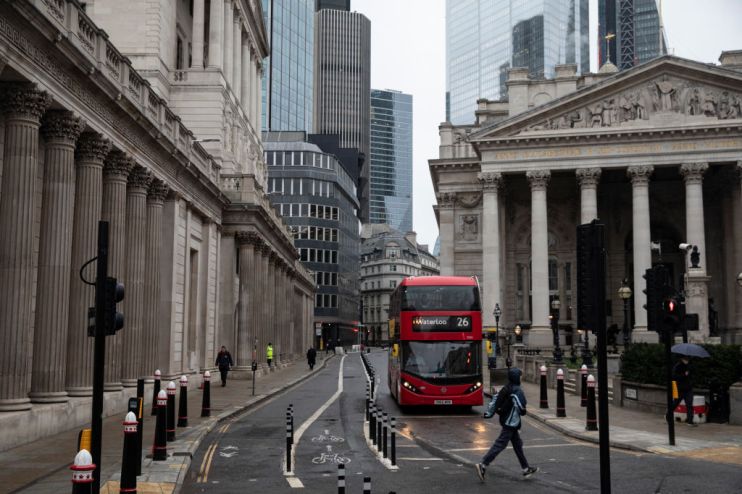Bank of England leaves monetary policy unchanged but slows bond-buying

The Bank of England’s Monetary Policy Committee has left its stimulus programme unchanged as it expects a faster economic recovery than previously anticipated.
As expected the committee unanimously voted to keep interest rates at 0.1 per cent and by a majority to keep the size of its bond-buying programme unchanged at £895m.
The central bank will slow bond-buying to £3.4bn a week between May and August, from the current pace of £4.4bn. But the committee made it clear this “should not be interpreted as a change in the stance of monetary policy”.
The BoE has generally been pretty optimistic in its forecasts. In February it projected the UK economy would return to its pre-pandemic size by the end of the year and they were somewhat vindicated when the hit to Q1 GDP was less severe than anticipated.
In its monthly report today it said the outlook for the economy remains uncertain but it is experiencing a “temporary period of strong GDP growth and a temporary period of modestly above-target CPI inflation”.
In its monthly report today, it said the economy is expected to expand 7.25 per cent in 2021, marking the strongest growth since records began in 1949.
Additionally the committee found UK unemployment peaked at just under 5.5 per cent in the third quarter, below the initial forecats of 7.8 per cent.
However, the cetnral bank said it does not intend to tighten monetary policy until there is “clear evidence” significant progress has been made in eliminating spare capacity and achieving the two per cent inflation target sustainably.
Denise Ko Genovese, senior personal finance editor of NerdWallet said: “The Bank of England is clearly reluctant to destabilise the UK’s economic recovery, particularly as the country is just starting to emerge from lockdown. As such, holding interest rates at current levels will likely offer relief to some.”
“That said, consistently low interest rates will never be ideal for cash savers. Low rates, combined with modestly rising inflation could lead to people’s savings stagnating, or worse yet, losing value in real terms.”